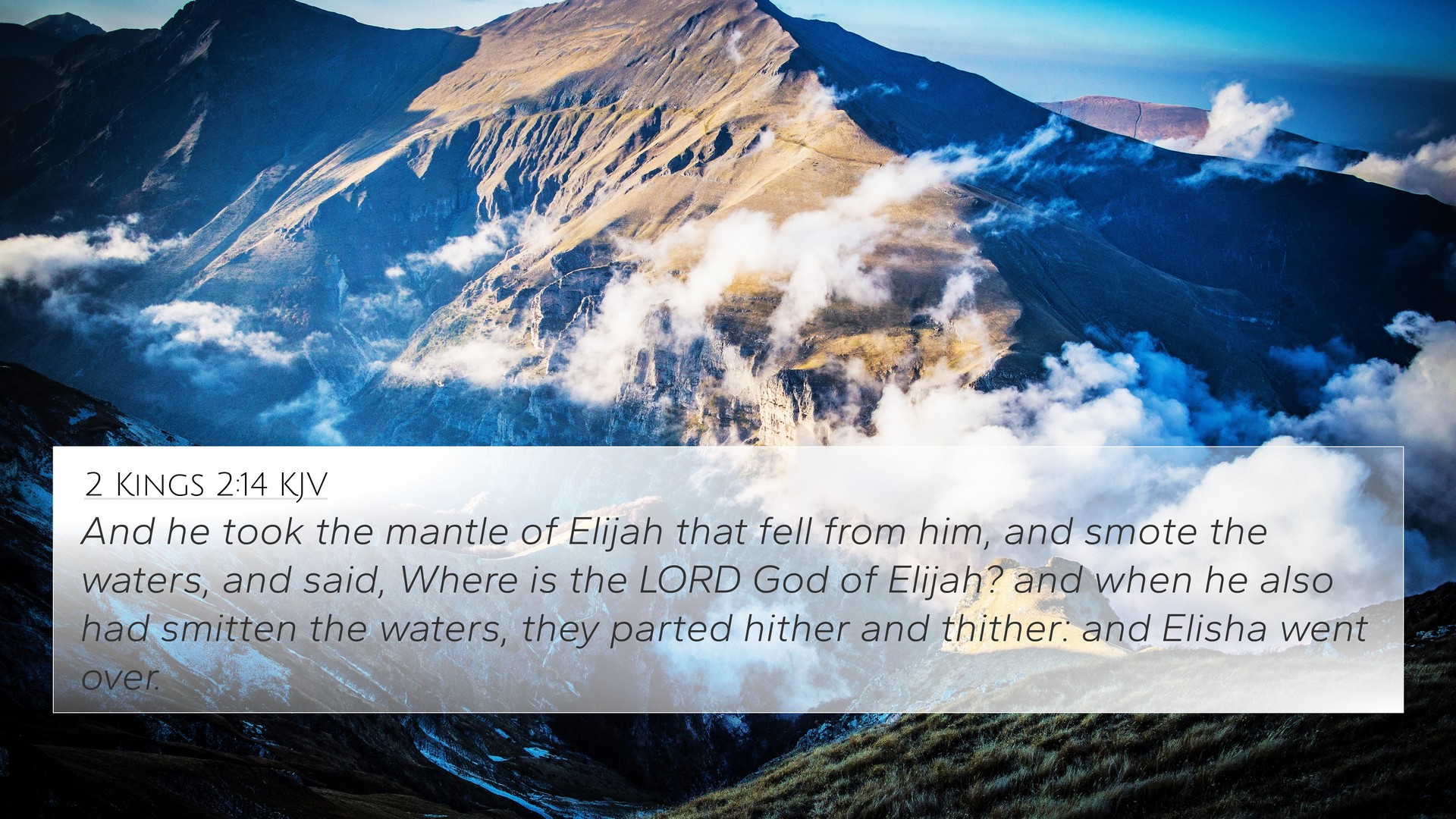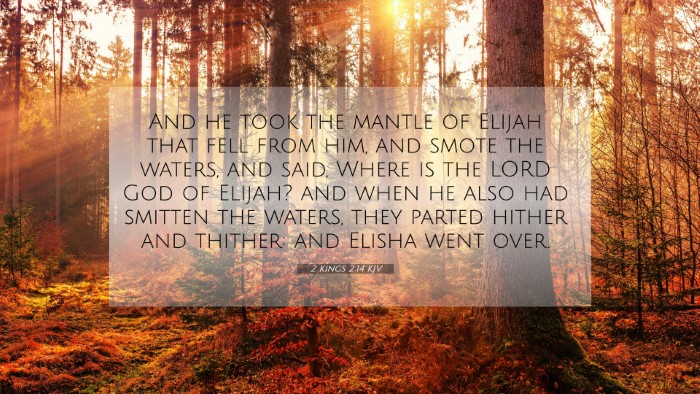This section features a detailed cross-reference designed to enrich your understanding of the Scriptures.
Below, you will find carefully selected verses that echo the themes and teachings related to 2 Kings 2:14 KJV. Click on any image to explore detailed analyses of related Bible verses and uncover deeper theological insights.
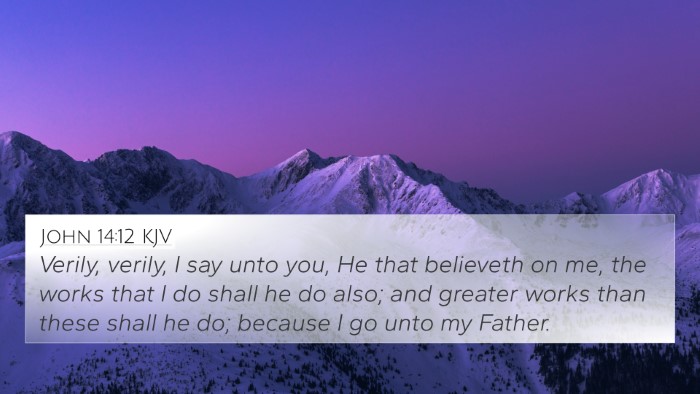 John 14:12 (KJV) »
John 14:12 (KJV) »
Verily, verily, I say unto you, He that believeth on me, the works that I do shall he do also; and greater works than these shall he do; because I go unto my Father.
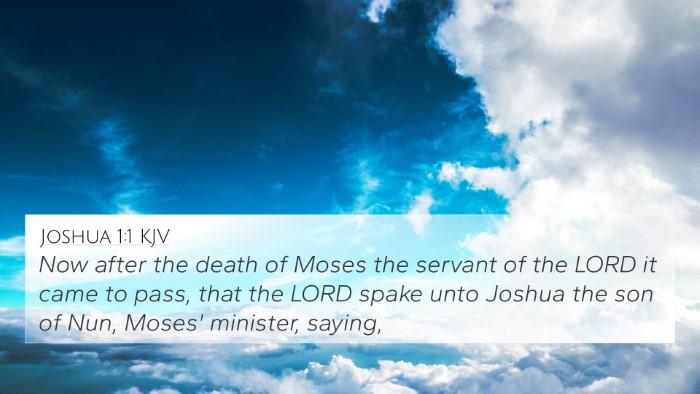 Joshua 1:1 (KJV) »
Joshua 1:1 (KJV) »
Now after the death of Moses the servant of the LORD it came to pass, that the LORD spake unto Joshua the son of Nun, Moses' minister, saying,
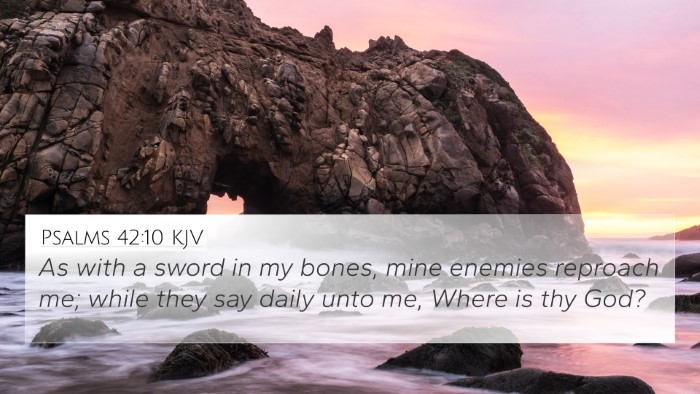 Psalms 42:10 (KJV) »
Psalms 42:10 (KJV) »
As with a sword in my bones, mine enemies reproach me; while they say daily unto me, Where is thy God?
 Psalms 42:2 (KJV) »
Psalms 42:2 (KJV) »
My soul thirsteth for God, for the living God: when shall I come and appear before God?
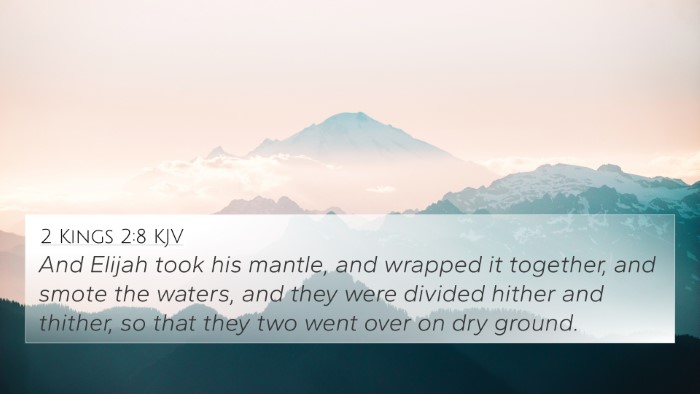 2 Kings 2:8 (KJV) »
2 Kings 2:8 (KJV) »
And Elijah took his mantle, and wrapped it together, and smote the waters, and they were divided hither and thither, so that they two went over on dry ground.
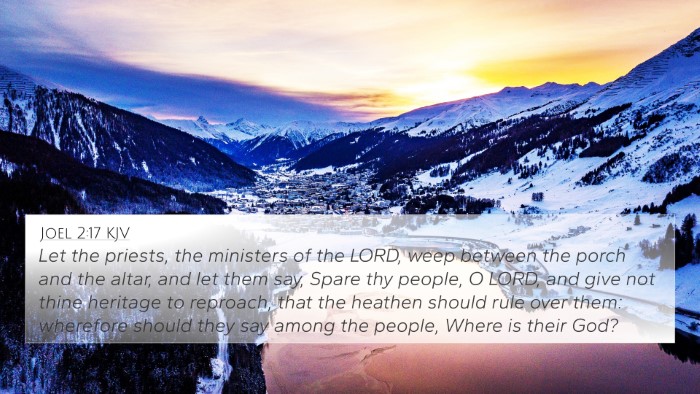 Joel 2:17 (KJV) »
Joel 2:17 (KJV) »
Let the priests, the ministers of the LORD, weep between the porch and the altar, and let them say, Spare thy people, O LORD, and give not thine heritage to reproach, that the heathen should rule over them: wherefore should they say among the people, Where is their God?
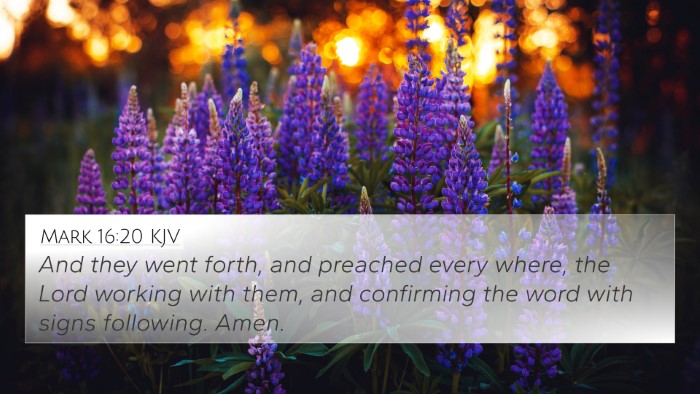 Mark 16:20 (KJV) »
Mark 16:20 (KJV) »
And they went forth, and preached every where, the Lord working with them, and confirming the word with signs following. Amen.
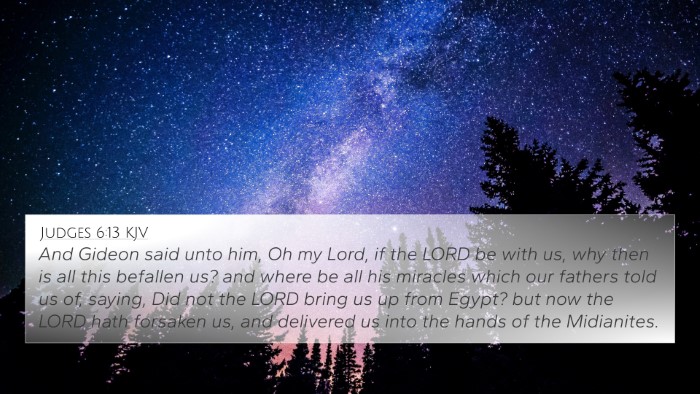 Judges 6:13 (KJV) »
Judges 6:13 (KJV) »
And Gideon said unto him, Oh my Lord, if the LORD be with us, why then is all this befallen us? and where be all his miracles which our fathers told us of, saying, Did not the LORD bring us up from Egypt? but now the LORD hath forsaken us, and delivered us into the hands of the Midianites.
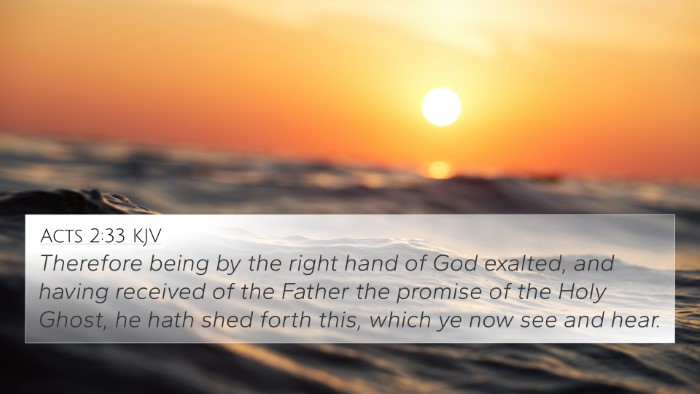 Acts 2:33 (KJV) »
Acts 2:33 (KJV) »
Therefore being by the right hand of God exalted, and having received of the Father the promise of the Holy Ghost, he hath shed forth this, which ye now see and hear.
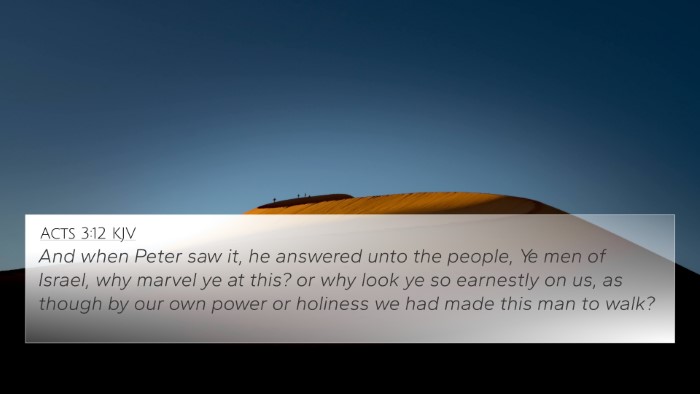 Acts 3:12 (KJV) »
Acts 3:12 (KJV) »
And when Peter saw it, he answered unto the people, Ye men of Israel, why marvel ye at this? or why look ye so earnestly on us, as though by our own power or holiness we had made this man to walk?
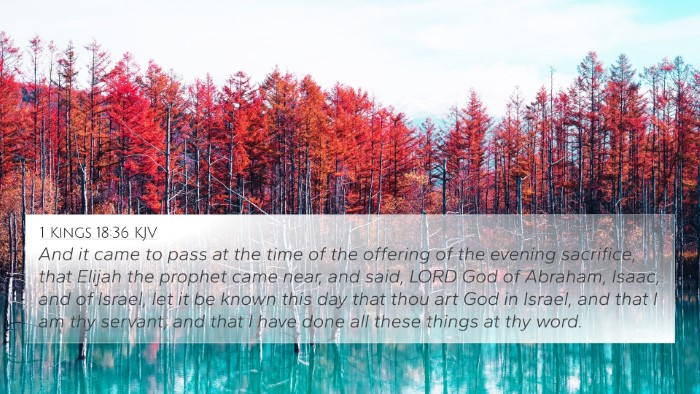 1 Kings 18:36 (KJV) »
1 Kings 18:36 (KJV) »
And it came to pass at the time of the offering of the evening sacrifice, that Elijah the prophet came near, and said, LORD God of Abraham, Isaac, and of Israel, let it be known this day that thou art God in Israel, and that I am thy servant, and that I have done all these things at thy word.
